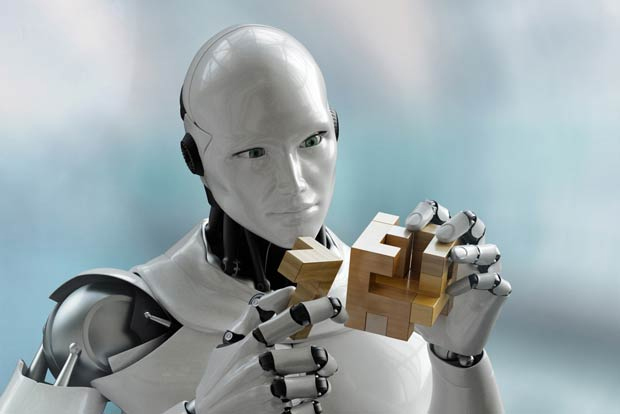Begin typing your search...
Automated workforce: Robots to ease fallout of virus in factories
Artificial intelligence and robots are often the stuff dystopian fantasies of mankind’s future are made of. But in the COVID-19 pandemic, a little help from a friend who’s immune to the virus may come in handy.

Chennai
As the coronavirus pandemic has emptied factory floors all over Germany, Patrick Schwarzkopf cannot help but sing a song of praise for the thousands of mechanic helpers that are keeping at least some production lines rolling or might prove their worth once factories reopen.
The head of the Robotics and Automation department at the German Association of Machine and Plant Manufacturers (VDMA) says automated production lines have a natural advantage in the current COVID-19 scare because “robots are immune to the coronavirus.” Of course, Schwarzkopf quickly adds, humans will “remain indispensable” in factories for a long time to come.
Although automation has been making rapid advances in recent years, industrial robots are presently
restrained mainly to “collaborative tasks” supporting human workers as so-called “cobots.” Susanne Bieller, general secretary of industry group International Federation of Robotics (IFR), even sees a crucial role for robots in attempts by companies to restart their production after weeks of coronavirus-induced lockdowns. They will help reduce the number of human workers on shop floors, she says, and could support social-distancing policies.
As shift plans will have to be rearranged to avoid human-to-human contact as best as possible, Bieller sees a potential of “every second workplace to be temporarily filled by a robot.” Flexibility and speed are essential if companies hit by a sudden slump in demand for their products want to benefit from new business opportunities opening up during the health crisis. Susanne Bieller notes however that any attempt at retooling production lines must be based on the “necessary
know-how” which isn’t easy to acquire.
“If my robots are good at welding, they are not necessarily good at sewing,” she says, referring to the present surge in global demand for face masks. But there are some examples of companies that have
mastered the technological process behind switching production quickly. In Germany, automation specialist PIA Automation Amberg and special machine builder Ruhlamat have teamed up to establish a fully automated production line for face masks.
Nicole Heller, a spokesperson for Marksuhl-based Ruhlamat, said the joint venture was able to complete the project “within one week.” “A subsidiary of our company was already developing a machine producing face masks, which we only needed to adapt to meet German and European product standards,” she admitted in an emailed statement.
Robots and AI software have long been associated with the brand-new world of working in the future, in which many present-day labourers will be obsolete or reduced to mere appendages to machines. VDMA official Patrick Schwarzkopf dismisses such fears, and says the coronavirus crisis hasn’t worsened concerns over and resistance to automated production. “I think all players in this sector are handling problems in a very pragmatic way, focusing on solutions,” he says.
Robotics industry lobbyist Susanne Bieller even thinks past prejudices toward automation and robots no longer exist. “Automation might help workers avoid cutting hours or losing their jobs altogether during the crisis. So, there’s no feeling of rivalry anymore,” she claims.
— The writer is a reporter with Deutsche Welle
Visit news.dtnext.in to explore our interactive epaper!
Download the DT Next app for more exciting features!
Click here for iOS
Click here for Android
Next Story



